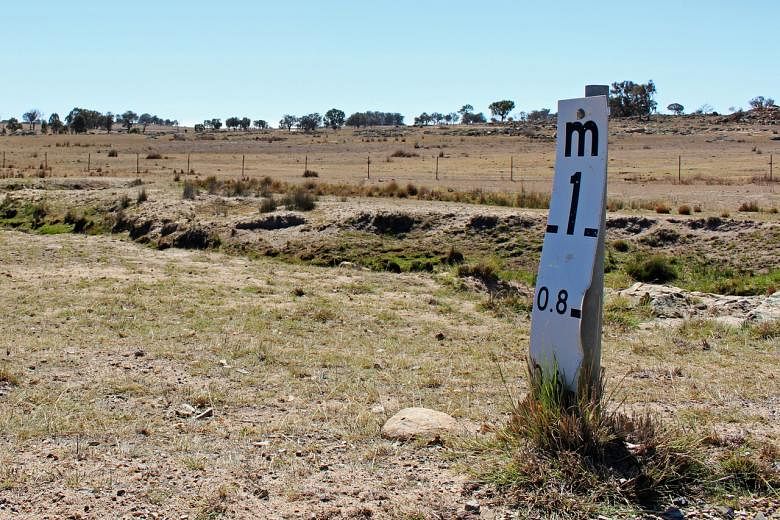SYDNEY - Australia is in the grip of a severe drought that has crippled farmers and left entire towns without water, but the effects are now spreading to major population centres such as Sydney.
This week, Sydney's five million residents were subjected to level 2 water restrictions for the first time since 2003. The restrictions, which began on Tuesday, include a ban on hosing gardens and restrictions on filling swimming pools. In addition, cars can only be washed with a bucket and gardens must be watered before 10am or after 4pm. Individuals who breach the rules face fines of A$220.
Yet residents seemed to accept the restrictions with little objection. Many are aware that their fellow citizens in areas dealing with prolonged drought or bushfires are enduring much harsher conditions brought by a warming planet.
A Sydney resident, Ms Tanya Lazarou, told The Sydney Morning Herald this week she had been teaching her four-year-old son about the need to conserve water, including not playing with taps at the local park.
"I'm teaching him that the farmers haven't got water and we need to be conscious of how much he turns the tap on, and how much he really needs," she said.
The restrictions follow a serious drought which has reduced dam levels around the city to 44.7 per cent as of Friday, down from 46.7 per cent a month earlier and 61 per cent a year ago. About 85 per cent of Sydney's water supply depends on rainfall captured by dams. The remainder is from Sydney's desalination plant, which was switched on in January as dam levels fell.
The New South Wales Government is exploring other sources of water, such as recycled water, more of which can be used to water public parks and gardens. The government is also set to increase the capacity of the desalination plant, which can currently produce 250 million litres a day, which is 15 per cent of Sydney's supply.
The run of dry weather in recent years has led to restrictions being imposed in water catchment zones across various states, particularly in the country's east and south-east. Some areas are at level 5 or 6 restrictions, which can rise to level 8. In the 42,000-person town of Orange, in New South Wales, for instance, gardens can only be watered on Sundays from 6-7pm and residents are urged to shower for a maximum of three minutes.
Some 370km north east, in the town of Murrurundi, which is on level 6 restrictions and relies on trucked-in water, resident Ron Ferguson said it was "very testing".
"I took it for granted for a long time that you turn that on and it just keeps running... but when you see how long this drought drags on, that tap's drying up pretty quickly," he told Channel Nine.
Australia's long run of hot, dry weather has taken a harsh toll on farmers and led to devastating bushfires, which continue to burn in parts of the country. Across Australia, water storage levels are at 48 per cent of capacity, down from 55 per cent a year ago.
A report by the Bureau of Meteorology released on Dec 2 found this year's spring was the driest on record. Average maximum temperatures since January have been the hottest on record.
The city of Newcastle, north of Sydney, is also set to be subject to level 2 water restrictions, the first in 40 years. These will involve limiting outdoor watering to 15 minutes every second day and limiting showers to four minutes. The restrictions will be imposed from Jan 20, unless there is sufficient rain.
Experts say Australia will only become drier as the climate changes and that more lasting measures will be required, such as greater use of recycled water.
Dr Petr Matous, from the University of Sydney, said governments should improve recycled water infrastructure but also encourage conservation and public awareness of the costs of usage, particularly in Sydney.
"Most of us in Sydney don't even know how much water we use, unlike people in other cities whose water bills depend on their actual consumption, or people in remote areas who live off their rainwater tanks," he wrote in a bulletin earlier this year.
As the dry weather continues, Sydney is bracing for a potential move to increase the water restrictions to level 3 within months. This could include curbs on water use by businesses such as car washes and plant nurseries.


